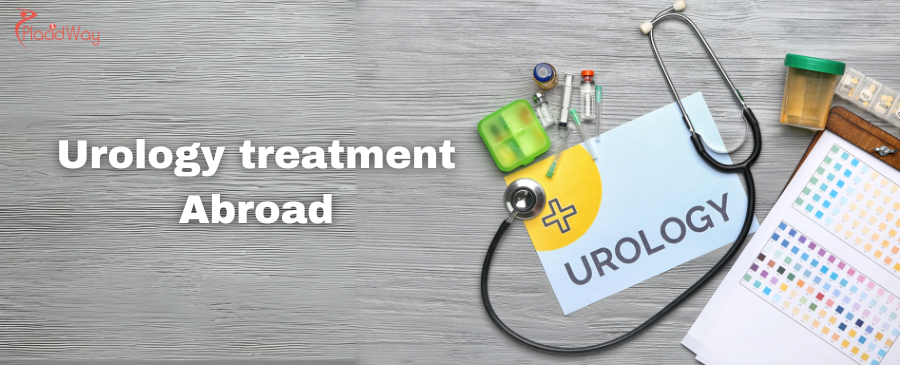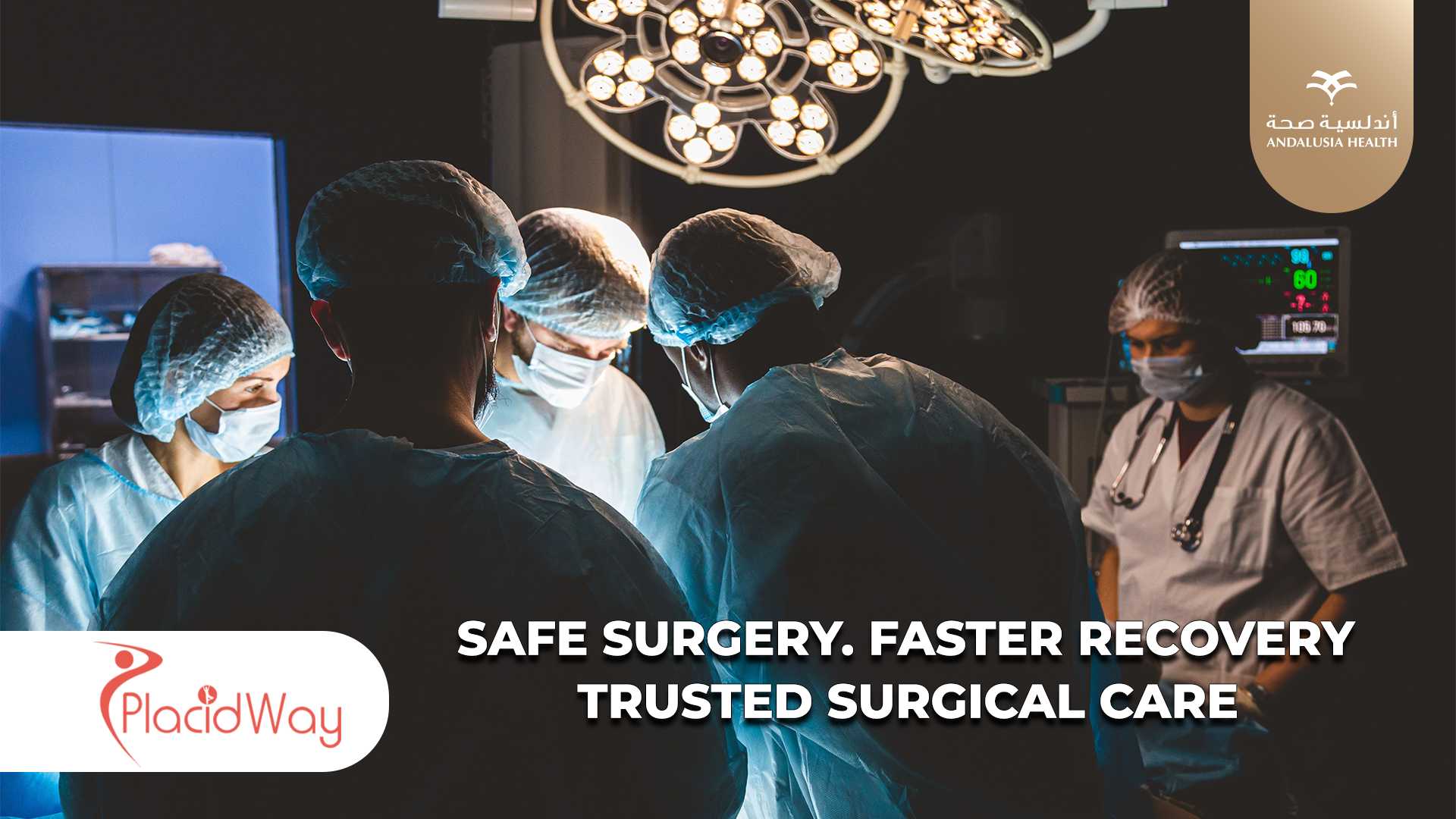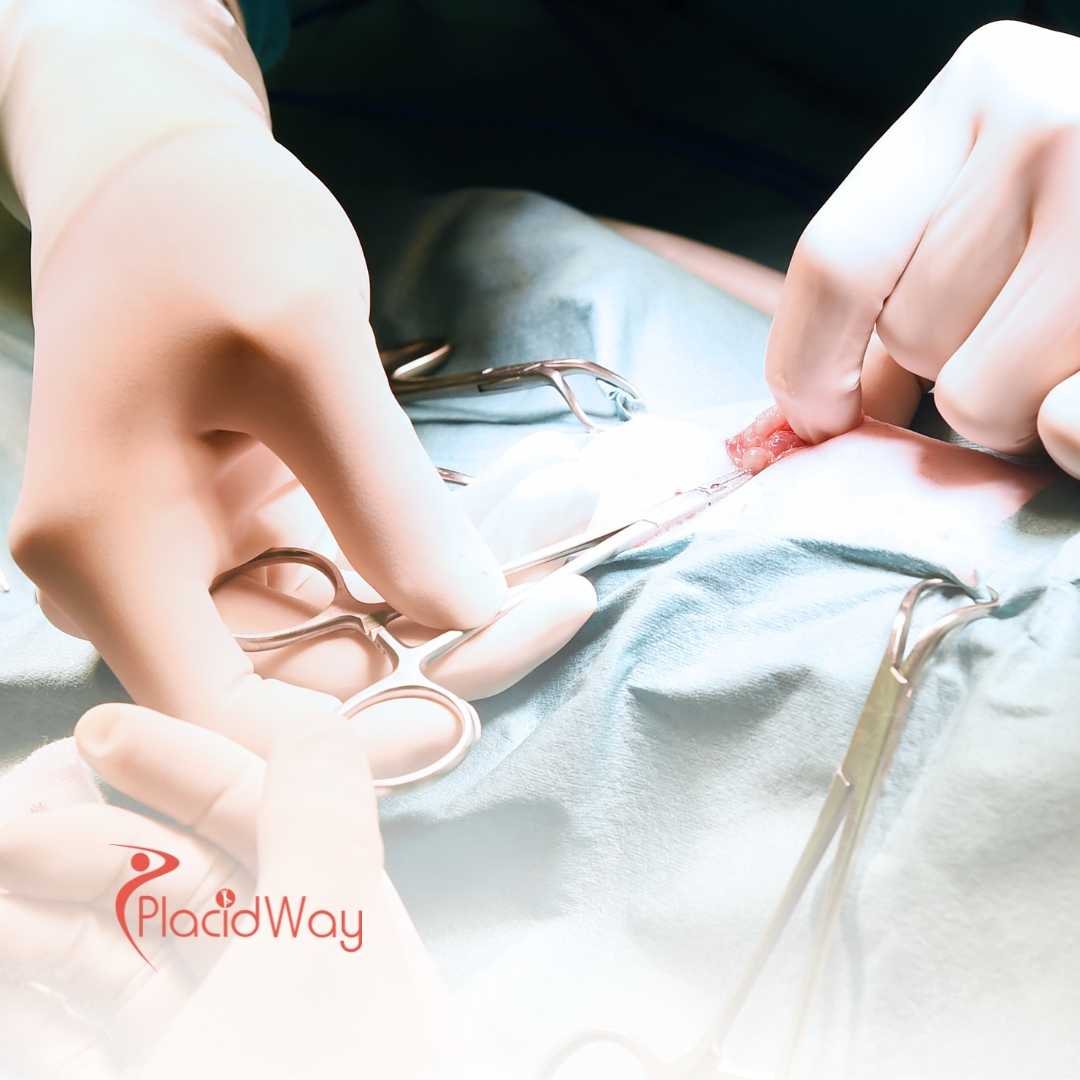
Navigating Urology Treatments Globally - A Patient's Guide
Facing a urological condition can be challenging, and the journey to finding the right treatment often involves navigating complex healthcare systems, long wait lists, and escalating costs. For many, seeking urology treatments abroad through medical tourism has emerged as a compelling solution. This path offers a unique blend of world-class medical expertise, advanced technology, and often, significantly more affordable prices compared to domestic options.
Urology is a specialized field focusing on the urinary tract system of both men and women, and the male reproductive organs. It addresses a wide range of conditions, from kidney stones and bladder issues to prostate health and male infertility. When considering urology medical tourism, patients gain access to highly experienced specialists and cutting-edge facilities in destinations known for their medical excellence, such as Turkey, India, Mexico, and Germany.
This comprehensive guide is designed to help you understand the myriad benefits of pursuing urology procedures abroad. We'll explore common treatments, eligibility criteria, preparation tips, and crucial aspects of the medical travel experience. Our goal is to empower you with the knowledge needed to make informed decisions about your health, ensuring you can access high-quality, cost-effective urological care while enjoying the advantages that medical tourism provides.
What is Urology and What Conditions Does it Treat?
Urology is a branch of medicine that deals with the diagnosis and treatment of diseases of the urinary tract in both sexes (kidneys, ureters, bladder, urethra) and the male reproductive organs (penis, testes, scrotum, prostate). Urologists are specialists who have expertise in these areas, treating conditions that can range from common infections to complex cancers.
The scope of urology is vast, covering issues such as:
- Kidney stones and other kidney diseases.
- Bladder control problems, including incontinence and overactive bladder.
- Prostate conditions, like benign prostatic hyperplasia (BPH) and prostate cancer.
- Urinary tract infections (UTIs) and sexually transmitted infections (STIs).
- Male infertility and erectile dysfunction.
- Cancers of the kidney, bladder, prostate, and testes.
Understanding the breadth of urology helps patients identify whether their condition falls under this specialty and if seeking specialized care, potentially abroad, is the right path.
What are the Common Types of Urology Procedures Available Abroad?
Medical tourism destinations offer a comprehensive range of urology procedures, often leveraging state-of-the-art technology and highly skilled surgeons. Patients can find advanced care for many conditions, making urology treatments abroad a viable option for various needs.
Some of the most frequently sought urology procedures internationally include:
- Kidney Stone Removal: Procedures like Extracorporeal Shock Wave Lithotripsy (ESWL), Ureteroscopy, and Percutaneous Nephrolithotomy (PCNL) are widely available. These methods efficiently break down or remove kidney stones, providing relief with minimal invasiveness.
- Prostate Treatments: For Benign Prostatic Hyperplasia (BPH), options include Transurethral Resection of the Prostate (TURP), laser therapies (e.g., GreenLight Laser), and newer techniques like UroLift. For prostate cancer, robotic prostatectomy (e.g., using the da Vinci system) is a highly advanced and precise surgical option often found in leading international clinics.
- Bladder Surgery: This can range from Transurethral Resection of a Bladder Tumor (TURBT) for bladder cancer to bladder augmentation or reconstruction for severe bladder dysfunction. Incontinence surgeries, such as sling procedures, are also common.
- Male Infertility & Sexual Health: Treatments include varicocelectomy for varicoceles, microsurgical epididymal sperm aspiration (MESA), or testicular sperm extraction (TESE) for sperm retrieval in cases of male infertility. Treatments for erectile dysfunction, including penile implants, are also offered.
- Urological Oncology: Surgical removal of cancers affecting the kidney (nephrectomy), bladder (cystectomy), or testes (orchiectomy) are performed using open or laparoscopic/robotic techniques, depending on the stage and location of the cancer.
These procedures often utilize advanced imaging and surgical techniques, ensuring high success rates and quicker recovery times, making international clinics attractive for complex urological care.
Who is a Suitable Candidate for Urology Procedures?
Determining eligibility for urology treatments abroad is similar to seeking care domestically. The primary factor is a confirmed diagnosis requiring urological intervention. Generally, candidates are individuals experiencing symptoms related to their urinary tract or male reproductive system that have not responded to conservative treatments, or those diagnosed with conditions requiring surgical or specialized medical management.
Key considerations for eligibility include:
- Overall Health: Patients should be in reasonably good general health to undergo surgery or complex treatments. Pre-existing conditions like uncontrolled diabetes, severe heart disease, or significant lung issues might pose risks.
- Medical History: A thorough review of past surgeries, current medications, allergies, and lifestyle habits (e.g., smoking, alcohol consumption) is essential.
- Specific Condition: The type, stage, and severity of the urological condition will dictate the appropriate procedure and whether it's suitable for the individual.
- Diagnostic Clarity: Patients should have comprehensive diagnostic reports (e.g., imaging scans, blood tests, biopsies) to ensure an accurate assessment by the international medical team.
Before traveling, a detailed virtual consultation with the chosen clinic's urologist is vital. This allows the medical team to review your case, discuss potential risks and benefits, and confirm your suitability for the procedure, ensuring a safe and effective treatment plan.
How Should I Prepare for a Urology Procedure?
Proper preparation is crucial for the success of any medical procedure, especially when undergoing urology treatments abroad. Your international medical team will provide specific instructions, but general steps often include:
- Medical Clearances: You may need blood tests, urine tests, ECG, and chest X-rays to ensure you're fit for surgery. If you have pre-existing conditions, clearance from your local primary care physician or specialist might be required.
- Medication Review: Discuss all current medications, including supplements and over-the-counter drugs, with your urologist. You might need to stop certain medications, like blood thinners, a week or two before the procedure.
- Dietary Restrictions: You'll likely be instructed to fast for several hours before surgery. Specific dietary guidelines might also be given depending on the procedure.
- Lifestyle Adjustments: Quitting smoking and reducing alcohol intake before surgery can significantly improve recovery and reduce complications.
- Travel and Accommodation: Plan your travel dates, ensure you have necessary visas, and arrange accommodation for your stay, including post-operative recovery. Having a travel companion is highly recommended.
Open communication with your medical coordinator and the clinic is key. They will guide you through each step, ensuring you are well-prepared both medically and logistically for your urology medical journey.
What are the Potential Risks and Success Rates of Urology Treatments?
Understanding the potential risks and typical success rates is a vital part of making an informed decision about urology procedures abroad. While international clinics often boast high standards, no medical procedure is entirely risk-free. Common general surgical risks include:
- Infection at the surgical site.
- Bleeding or hematoma formation.
- Adverse reactions to anesthesia.
- Pain or discomfort.
- Damage to surrounding tissues.
Specific risks vary depending on the urological procedure. For example, prostatectomy might carry risks of urinary incontinence or erectile dysfunction, while kidney stone removal could involve stone recurrence. Your consulting urologist will thoroughly explain the risks pertinent to your specific treatment during your consultation.
However, modern urological treatments, particularly those using minimally invasive and robotic techniques common in leading medical tourism destinations, typically have high success rates. For instance, robotic prostatectomy boasts excellent outcomes for prostate cancer control with improved recovery. Kidney stone removal procedures are highly effective, and BPH treatments offer significant symptom relief. Researching clinic success rates and surgeon experience is crucial for patients exploring urology medical tourism.
Why Choose Medical Tourism for Urology Treatments?
The decision to pursue urology treatments abroad is often driven by several compelling advantages that medical tourism provides. For many patients, it’s a pathway to receiving necessary care that might otherwise be out of reach due to financial or logistical barriers at home.
Key benefits include:
- Significant Cost Savings: This is arguably the biggest draw. Procedures that cost tens of thousands in Western countries can be performed for a fraction of the price in popular medical tourism destinations, without compromising on quality.
- Access to Advanced Technology and Specialists: Many international clinics invest heavily in cutting-edge equipment like robotic surgical systems and employ highly skilled, internationally trained urologists who are leaders in their field.
- Shorter Wait Times: In countries with universal healthcare or high demand, wait lists for specialized urological procedures can be prohibitively long. Medical tourism offers immediate access to consultations and treatments, allowing for timely intervention.
- High Quality of Care: Top medical tourism facilities are often accredited by international organizations, ensuring adherence to global standards of patient safety and medical excellence.
- Privacy and Discretion: Some patients prefer the anonymity and privacy offered by seeking treatment in a different country.
- Opportunity for Recovery in a Relaxing Environment: Combining treatment with a stay in a new country can offer a more relaxing and private recovery experience than a hospital stay at home.
These factors collectively make urology medical tourism an attractive option for patients seeking efficient, high-quality, and affordable care.
How Do I Select the Right Country and Clinic for Urology Care?
Selecting the ideal destination and clinic for your urology treatments abroad requires careful research and consideration. It’s not just about cost, but also about the quality of care, expertise, and overall patient experience. Here's how to approach this crucial decision:
- Accreditation: Look for clinics accredited by international bodies like Joint Commission International (JCI). This signifies adherence to global standards of patient safety and quality.
- Surgeon Credentials and Experience: Research the urologists’ qualifications, their board certifications, and their experience with your specific procedure. Look for surgeons who have performed a high volume of the procedure you need.
- Specialization: Some clinics or urologists specialize in certain areas (e.g., prostate cancer, kidney stones). Ensure the clinic's expertise matches your needs.
- Technology and Facilities: Verify that the clinic has modern equipment and technology relevant to your treatment (e.g., robotic surgery systems for prostatectomy, advanced lithotripsy machines for kidney stones).
- Patient Reviews and Testimonials: Read reviews from previous international patients. Their experiences can provide valuable insights into the quality of care, communication, and overall service.
- Comprehensive Packages and Support: Assess what’s included in the treatment package, such as airport transfers, accommodation, interpretation services, and post-operative care.
Working with a reputable medical tourism facilitator like PlacidWay can significantly simplify this process, as they often have pre-vetted networks of clinics and can provide personalized recommendations for urology medical tourism.
What is the Cost Comparison of Urology Procedures Worldwide?
One of the most compelling reasons for patients to consider urology treatments abroad is the potential for substantial cost savings. The price difference for identical procedures can be staggering, making advanced care accessible to a wider demographic. These costs are estimates and can vary based on the complexity of the case, chosen clinic, surgeon's fees, and length of stay.
| Procedure | USA (Est.) | Germany (Est.) | Turkey (Est.) | India (Est.) | Mexico (Est.) |
|---|---|---|---|---|---|
| Radical Prostatectomy | $30,000 - $60,000 | $18,000 - $30,000 | $9,000 - $18,000 | $7,000 - $15,000 | $8,000 - $16,000 |
| Kidney Stone Removal (ESWL/Ureteroscopy) | $10,000 - $25,000 | $6,000 - $12,000 | $3,500 - $7,000 | $2,500 - $5,500 | $3,000 - $6,000 |
| TURP (Transurethral Resection of Prostate) | $15,000 - $30,000 | $8,000 - $15,000 | $4,500 - $8,500 | $3,500 - $7,000 | $4,000 - $7,500 |
| Cystectomy (Bladder Removal) | $40,000 - $80,000 | $25,000 - $45,000 | $12,000 - $25,000 | $9,000 - $20,000 | $10,000 - $22,000 |
These significant price differences allow patients to not only afford the primary treatment but often also cover travel, accommodation, and a relaxing recovery period, all while potentially saving tens of thousands of dollars. Always request a detailed, all-inclusive quote to understand the full financial commitment for your urology medical tourism journey.
What Should I Expect During My Medical Trip for Urology Treatment?
Embarking on a medical trip for urology treatments abroad can feel daunting, but a well-organized plan ensures a smooth experience. Most medical tourism facilitators and clinics offer comprehensive support throughout your journey.
Here’s a general overview of what you can expect:
- Arrival and Welcome: Many clinics arrange airport transfers and have patient coordinators or interpreters meet you upon arrival. You'll be taken to your accommodation or directly to the clinic for initial appointments.
- Pre-operative Consultations and Tests: Upon arrival, you'll have face-to-face consultations with your urologist and team. Any necessary final diagnostic tests, blood work, or physical exams will be conducted to confirm your readiness for the procedure.
- The Procedure: The surgery or treatment will be performed at the scheduled time. Modern international facilities often utilize the latest equipment and adhere to high surgical standards.
- Hospital Stay and Recovery: Depending on the procedure, you'll have a hospital stay followed by a recovery period. This might involve staying in a recovery house or hotel near the clinic, where you can rest and receive necessary follow-up care.
- Post-operative Checks: Before you return home, your urologist will conduct final check-ups to ensure your recovery is progressing well and provide detailed post-care instructions.
The entire process is designed to be streamlined, minimizing stress and allowing you to focus on your health and recovery while undergoing urology medical tourism.
Are Language Barriers an Issue in Medical Tourism for Urology?
A common concern for patients considering urology treatments abroad is the potential for language barriers. Effective communication between patients and their medical team is crucial for successful treatment and patient safety. Fortunately, reputable medical tourism providers and clinics have robust systems in place to address this.
- English-Speaking Staff: Many top international hospitals catering to medical tourists have English-speaking doctors, nurses, and administrative staff, especially in departments that frequently treat international patients like urology.
- Professional Interpreters: For situations where direct English communication might be insufficient, clinics often provide professional medical interpreters. These interpreters are trained to facilitate precise communication of complex medical information, ensuring you fully understand your diagnosis, treatment plan, and post-operative instructions.
- Patient Coordinators: Dedicated international patient coordinators often serve as a bridge, helping patients navigate the healthcare system, answer questions, and arrange translation services.
- Documentation: Medical records, consent forms, and discharge instructions are typically provided in English or translated accurately.
By choosing an experienced medical tourism facilitator like PlacidWay, you can be assured that communication will be a priority, minimizing misunderstandings and ensuring a smooth and clear experience during your urology medical journey.
What Follow-up Care is Needed After Urology Treatment Abroad?
Effective follow-up care is just as critical as the procedure itself for successful long-term outcomes after urology treatments abroad. Before you return home, your international medical team will provide comprehensive instructions to ensure a smooth recovery.
This typically includes:
- Detailed Discharge Instructions: Clear guidelines on wound care, medication schedules, activity restrictions, dietary recommendations, and warning signs to look out for.
- Local Physician Coordination: It's essential to communicate with your primary care physician or local urologist about your recent procedure. Share all medical reports and discharge summaries from your international clinic so they can take over your ongoing care.
- Remote Consultations: Many international clinics offer follow-up virtual consultations with your urologist. This allows them to monitor your progress, answer questions, and address any concerns you might have after returning home.
- Rehabilitation or Physical Therapy: For some procedures, physical therapy or specific exercises might be recommended to aid recovery, particularly for conditions affecting continence or sexual function.
- Medication and Prescriptions: Ensure you have an adequate supply of necessary medications for your journey home and arrange for refills with your local doctor.
Planning for follow-up care is a key component of a successful urology medical tourism experience, and facilitators can often assist in coordinating this transition seamlessly.
How Can PlacidWay Assist with My Urology Medical Journey?
Navigating the world of medical tourism can be complex, but PlacidWay acts as your trusted partner, simplifying every aspect of your journey for urology treatments abroad. We understand the unique needs of patients seeking specialized care internationally and are dedicated to providing a seamless, stress-free experience.
Here’s how PlacidWay empowers your medical journey:
- Extensive Network of Top Clinics: We partner with internationally accredited hospitals and clinics specializing in urology, ensuring you have access to world-class facilities and highly experienced urologists globally.
- Personalized Treatment Plans: Our team helps you gather your medical records and connects you with multiple clinics to receive personalized quotes and treatment plans tailored to your specific urological condition and budget.
- Transparent Cost Comparisons: We provide detailed information on pricing, helping you compare costs across different countries and clinics, ensuring you get the best value without hidden fees for your urology procedures abroad.
- Logistical Support: From assisting with travel arrangements, visas, and accommodation to coordinating airport transfers and interpretation services, we handle the practicalities so you can focus on your health.
- Unbiased Information and Patient Advocacy: PlacidWay offers objective information and acts as your advocate, ensuring you receive clear communication and support at every stage, from initial inquiry to post-treatment follow-up.
Let PlacidWay be your guide to finding the best global healthcare solutions for your urological needs, making your urology medical tourism experience efficient, affordable, and successful.
Take the Next Step with PlacidWay
Ready to explore world-class urology treatments with global expertise and significant savings? Your journey to better urological health is just a click away. Explore top-rated international clinics, compare prices for urology procedures abroad, and get a free, personalized quote for your treatment with PlacidWay. Let us help you plan a seamless and successful medical travel experience. Start your transformation today!






.png)
.png)


Share this listing